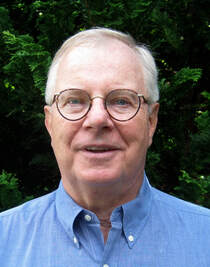 Peter Gow Peter Gow Things are getting rugged, and change is in the wind. But a few things are clear for educators. One obvious fact is that the diversity train has long since left the station, and those of us who teach kids had better be ready. The haters and white supremacists have already lost the demographic battle, try as they may to keep warping the rule of law to favor their own kind. European Americans in the United States will be a minority—whether it happens in 2020, 2030, or 2050, it doesn’t matter, because it is the future. But when will this racial and cultural diversity be manifest everywhere? I don’t mean just regionally, or city/suburb/rural, or public school/private school, but everywhere we go and everywhere we look and everywhere we live? This is likely to happen farther off than 2020, as the current European American majority has had a few centuries to learn how to keep to itself when it’s in our (ouch! but yes, for this writer it’s the fact) interest to do so. The contemporary political climate has done nothing but make things worse. Whether one is on the offensive or defensive, one is always made to feel that one’s own position is either vulnerable or intolerant. It reminds me of the way in which White America from the colonial period through the 19th century dealt with Native Americans: concoct or imagine signs of some sort of dire threat, loudly play the victim, and then respond by attacking with overwhelming force. It’s the “paranoid style” at its most egregious. If independent schools are as committed as most of them say they are to issues of equity and justice, and if they really want to enact the ideals in their missions, they have a lot of work to do. Plenty of schools are busy doing that work, discovering that the farther along they get, the harder the work becomes. Idealism of any sort requires great courage and great honesty, and humans are frail; when having to open our minds and our hearts to whole new ways of being and knowing, we are often more frail still. Some years back a colleague by the name of Nadine Nelson did some amazing work at the school I worked at to help us figure out how to be a better place for our students and colleagues from underrepresented groups. She had a term that has stayed with me, the “All-Terrain Kid.” The ATK was the student who would be sufficiently curious, sufficiently self-aware, sufficiently humble, sufficiently informed, and sufficiently brave to be at home in any cultural milieu. Parachute the All-Terrain Kid into any setting, and they would be able to present themself with respect and intelligence and to communicate on an authentic level with anyone. The All-Terrain Kid is an ideal I still hold in my head for our students and for my own children. That’s the kid who can look beyond the divisiveness that agitates our society now and for whom newly evolving communities that truly represent the diversity of our society and our planet will be welcoming, welcome, and exciting places. I think schools should be thinking equally hard about how to develop the All-Terrain Teacher. However one construes “diversity,” the ATT has to be able to negotiate it with the integrity, wit, and courage in all of its manifestations. Who is going to teach generations of All-Terrain Kids, if not generations of All-Terrain Teachers? Once upon a time the TJX Corporation put together a diversity task force built around what they called the “arenas of diversity.” I like the model, and drawing on it I would propose that the training and the work of the All-Terrain Teacher be built around these six Arenas of Diversity:
The All-Terrain Teacher in the thoughtful school will need to have given enormous intentional consideration to each of these areas. Some schools may choose to opt out of this work, keeping their doors and hearts closed to certain kinds of difference, but the terrain that their students, families, and faculties will be negotiating will change nonetheless. Those who choose not to participate will surely be left far behind. Like the All-Terrain Kid, the All-Terrain Teacher is an ideal. But the ideal can be fulfilled. It will take more than workshops and seminars, more than “diversity days” and diversity offices. It will have to begin with a systemic acknowledgment within the school that the world is truly changing, and that old modes and orders are going to be giving way to new ones, regardless of anyone’s comfort with the change. To do the work will take nerves of steel and a willingness to try new things and to learn from our blunders as we do. And it should go without saying that all-terrain-ness will have to be manifest in every aspect of a school’s curriculum and programs. Perhaps there is a Seventh Arena of Diversity, the arena of change itself. Above all, schools that want to be themselves “all-terrain” will need to master the art of moving forward like a camel in a sandstorm, able to survive ever-shifting conditions and avoiding the ever-present temptation to stop and rest. The goal, the creation of an “all-terrain world” whose ideals are as inclusive and morally generous as the ideals of the school, is out there: it lies just where our words and our loftiest hopes place it. If we keep it in sight, we can make it.
1 Comment
Diane Sarkarati
6/8/2020 09:26:51 am
This is a daunting task, to formulate a perfect way to communicate with and teach our vulnerable students in an alien world. Right now, I feel like that camel in a sandstorm, knowing that I have to move forward, but not sure of which direction to take.
Reply
Leave a Reply. |
Don't miss our weekly blog posts by joining our newsletter mailing list below:AuthorsBrad Rathgeber (he/him/his) Archives
July 2024
Categories |

 RSS Feed
RSS Feed